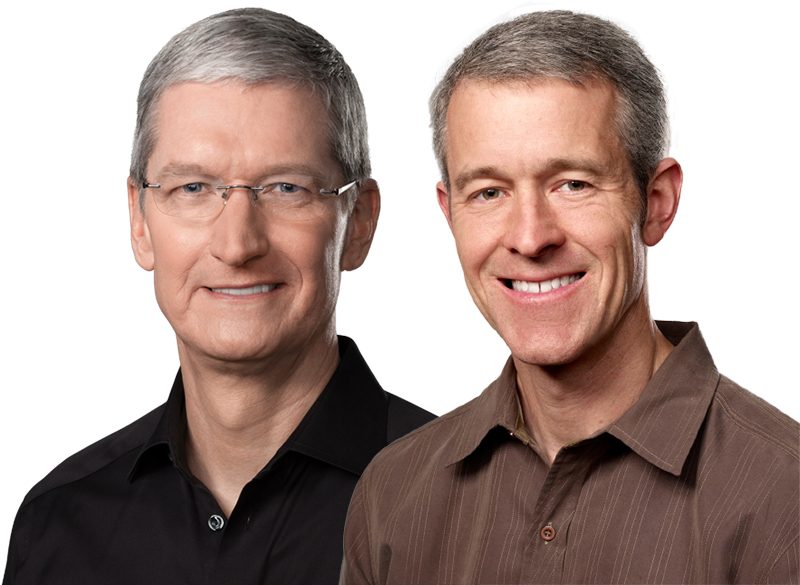Exploring The Life And Leadership Of Apple's CEO

Tim Cook, the CEO of Apple Inc., has been a pivotal figure in the technology industry, steering one of the world's most valuable companies into new horizons. As the successor to the legendary Steve Jobs, Cook has faced enormous expectations and challenges. His leadership style, strategic decisions, and partnerships have not only shaped Apple but also influenced the technology landscape globally. In this article, we will delve into Tim Cook's background, his partnership dynamics within Apple, and the impact of his leadership on the company’s trajectory.
Understanding Tim Cook's role as a partner within Apple offers insights into the collaborative efforts that drive innovation and success in one of the most competitive markets. This article will explore Cook's early life, career advancements, and the key partnerships that have defined his tenure at Apple. We will also analyze Cook's leadership philosophy and how it has contributed to Apple's resilience and growth in a rapidly changing technological environment.
As we navigate through Tim Cook's journey, we will highlight critical aspects of his leadership style, including his approach to partnerships, corporate responsibility, and his vision for the future of technology. By examining these elements, readers will gain a comprehensive understanding of why Tim Cook is not just a CEO but a transformative leader in the tech industry.
Table of Contents
Biography of Tim Cook
Tim Cook was born on November 1, 1960, in Mobile, Alabama. He graduated from Auburn University with a degree in Industrial Engineering and later earned an MBA from Duke University's Fuqua School of Business. Cook joined Apple in 1998 as Senior Vice President for Worldwide Operations and played a crucial role in streamlining the company's supply chain and operations.
| Personal Information | Details |
|---|---|
| Name | Tim Cook |
| Date of Birth | November 1, 1960 |
| Education | Auburn University (B.S.), Duke University (MBA) |
| Position | CEO of Apple Inc. |
| Years Active | 1998 - Present |
Early Life and Education
Tim Cook grew up in a working-class family and learned the value of hard work at a young age. His father worked in a shipyard, and his mother was a homemaker. Cook's interest in technology began early, and he displayed a knack for problem-solving and leadership during his school years.
Education Background
After receiving his bachelor's degree from Auburn University, Cook's passion for business led him to pursue an MBA. His education equipped him with a strong foundation in management and operations, preparing him for his future role at Apple.
Career Path at Apple
Cook’s career at Apple began in 1998, and he quickly made a name for himself by optimizing Apple's supply chain and improving operational efficiencies. His expertise was critical during the company's turnaround in the early 2000s.
Rise to CEO
In 2011, following the passing of Steve Jobs, Tim Cook was appointed CEO of Apple. Under his leadership, Apple has launched numerous successful products, including the Apple Watch, AirPods, and various iterations of the iPhone, strengthening its market position.
Tim Cook's Leadership Style
Cook's leadership style is characterized by collaboration, transparency, and a focus on innovation. He emphasizes the importance of teamwork and values the input of his executive team and employees.
Focus on Diversity and Inclusion
One of Cook’s notable initiatives has been his commitment to diversity and inclusion within Apple. He believes that a diverse workforce fosters innovation and creativity, which are vital for the company's continued success.
Key Partnerships in Apple's Growth
Throughout his tenure, Tim Cook has forged crucial partnerships that have played a significant role in Apple's expansion. Collaborations with companies like IBM, Microsoft, and various supply chain partners have enhanced Apple's product offerings and market reach.
Strategic Alliances with Tech Giants
By partnering with other technology leaders, Apple has been able to integrate new technologies and expand its ecosystem, making its products more appealing to consumers.
Commitment to Corporate Responsibility
Tim Cook has also positioned Apple as a leader in corporate social responsibility. Under his guidance, Apple has made significant strides in environmental sustainability, focusing on renewable energy and reducing carbon footprints.
Philanthropy and Community Engagement
Cook believes in giving back to the community, leading various philanthropic initiatives and encouraging Apple employees to engage in charitable activities.
Impact on the Technology Industry
Tim Cook's influence extends beyond Apple, impacting the broader technology industry. His emphasis on privacy and security has set a standard that many tech companies now strive to meet.
Advocacy for User Privacy
Cook has been a vocal advocate for user privacy, often speaking out against practices that compromise consumer data. His commitment to transparency has resonated with Apple users and strengthened brand loyalty.
Future Vision for Apple and Technology
Looking ahead, Tim Cook envisions a future where technology continues to enhance human life while addressing global challenges such as climate change and inequality. His commitment to innovation and social responsibility will likely shape Apple's strategies for years to come.
Innovation in Emerging Technologies
As Apple explores new frontiers, including augmented reality (AR) and artificial intelligence (AI), Cook's leadership will be crucial in guiding the company through these transformative changes.
Conclusion
In summary, Tim Cook's journey as a leader at Apple Inc. illustrates the power of collaboration, innovation, and responsibility. His partnerships, commitment to diversity, and advocacy for user privacy have significantly shaped the technology landscape. As we look to the future, Cook's vision will undoubtedly continue to influence Apple and the broader tech industry.
If you found this article insightful, we encourage you to leave a comment, share your thoughts, and explore more articles on our site. Your engagement helps us to provide quality content that meets your interests!
Penutup
Thank you for taking the time to learn about Tim Cook and his impact on Apple and the technology industry. We hope to see you back on our site for more engaging content and discussions!
ncG1vNJzZmivp6x7o77EnKKepJxjwqx7zaiurKyimq6ufY9oq6KlXZi8sLeMqZirrJ6av2%2B006aj
